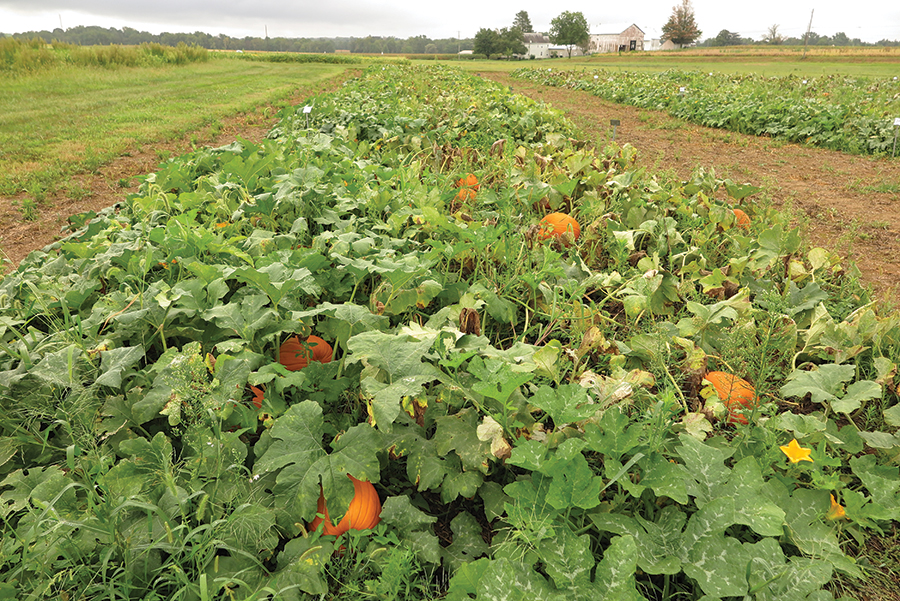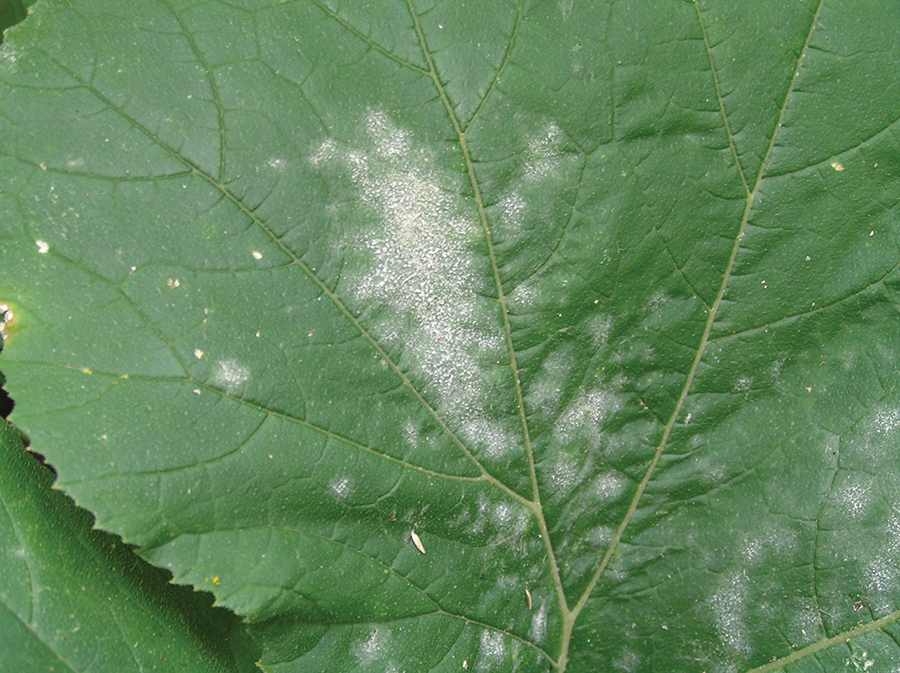

Mar 27, 2024Pumpkins and resistance to powdery mildew
A plant’s genetic resistance to diseases is something researchers actively pursue across the country. In many specialty crops, the persistent diseases threaten to cut yields and growers’ bottom lines.
Resistance, however, is not immunity, so it’s just one tool available to growers — a temporary one, according to Tim Elkner, a Penn State commercial horticulture Extension educator based in Lancaster County, Pennsylvania. Elkner spoke on powdery mildew on pumpkins Feb. 1 during the Mid-Atlantic Fruit & Vegetable Convention in Hershey, Pennsylvania.
“So you can’t plant a resistant crop and figure that you’re done spraying (for powdery mildew),” Elkner said, although growers welcome everything that works in their favor. Although powdery mildew also affects cucumbers, cantaloupes and watermelons, most of his interactions with growers on powdery mildew concern larger-leafed squashes and pumpkins.


Despite most of the newer varieties being bred for resistance, growers should be vigilant, he said. The trials were at the Southeast Agricultural Research and Extension Center in Manheim, Pennsylvania, on the Howden pumpkin variety. Powdery mildew was first observed on July 29, 2021; July 28, 2022; and Aug. 2, 2023. Fungicides were applied four times in 2021, five times in 2022 and six times in 2023.
“So what that’s telling me is three years in a row, on a susceptible variety, Howden, I’m needing to be ready to put something on in late July,” Elkner said. To judge effectiveness, the research team checked the top and bottom of six leaves per plot. As there isn’t a single solution for growers, Elkner recommends taking into account everything from location, disease pressures and even what type of marketing model is used to sell the pumpkins.
In general, however, using a mix of different fungicides improves the overall efficiency of a spraying program, he said. “(How) long is your crop in the field? If you’re a pick-your-own operation or you’re roadside marketing and you have to have pumpkins laying in the field into October, then you’re probably going to want to look for something with more products in there to bring those different modes of action in,” Elkner said.
For the auction or wholesale markets, where a field can be picked clean and moved in one massive shipment, a variety of products and numerous applications aren’t as necessary. “It’s going to go back to what are you doing with your fruit? How long do you need those leaves clean?” he said.
Overall, Elkner noted that better-performing materials include Proline, Torino, Quintec, Vivando, Luna Experience and Procure. Last summer, Elkner also conducted powdery mildew/ fungicide research on the Gladiator variety, which shows resistance to the fungal disease.
The research, through the Pennsylvania Vegetable Growers Association, used Microthiol, PerCarb, JetAG and Timorex. Some best practices that Elkner noted in his research are:
- Start with the most effective fungicide first. • Use products with at least two FRAC codes, more if possible.
- Make a plan that allows for limited applications if the crops will be in the field long; for example, Vivando is limited to three applications.
- Start with an application or two (or rotate with) Sulfur.
Elkner plans to continue his research this summer, starting applications before powdery mildew is detected in the fields and using more selective products first — ones that are active on specific diseases but have minimal effect on non-target organisms.
— Chris Koger, managing editor
Top photo: Powdery mildew damage is visible on the right side of this plot of pumpkins.














